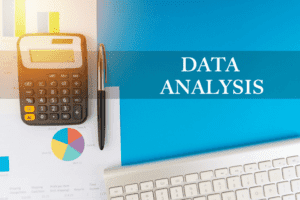Bookkeeping
How AI can transform the way accountants work for the better

What is perfectly clear to all, is that just like almost every other industry, AI is set to radically impact the accounting profession – in ways we may not even be able to imagine. Like any new technology, there will be those who embrace the power of AI in accounting, and those who shun it. And there is no doubt that while there are numerous benefits for accountants, there are challenges ahead benefits of ai in accounting too. In this podcast blog, I explained how AI can be properly integrated into a firm’s operations and how it can increase business growth and competitiveness. It also detects errors or omissions in tax filings to ensure compliance with regulations and maximize tax savings. This AI creates questions for accountants to send to clients or modify, saving them time and effort from retyping.
- AI simplifies and automates time-consuming manual tasks like data entry, reconciliations, and invoice processing, ensuring high accuracy.
- Accounting professionals had to pivot and adapt to new ways of doing things, such as auditing clients remotely and sharing data online.
- If corporate clothing makes each worker seem more representative of their employers, the authors suggest that it may be a good idea not to give it to inexperienced workers.
- When you have so much to do that you wish you had an extra set of hands, AI is that extra set that will take care of the little things.
- It’s like having a crystal ball for financial decision making, and it’s in the hands of professionals and their clients.
- Artificial intelligence tools by themselves (think ChatGPT, Google Bard, and others) are most useful when they are integrated into the tools you already work with.
- New, evolving accounting roles incorporate the use of AI tools, allowing accountants the opportunity to upskill their roles and provide a broader portfolio of services.
Technology advances will continue to push accountants’ power to interpret data. Previously, they shifted from pen and paper to calculators to spreadsheets to data entry tools. Now, they need to ace technologies such as AI and ML to detect patterns and outliers in financial data and help business leaders make the right decision. By 2025, technologies enabling hyper automation will deliver more than 50% of work for finance and accounting BPO firms, according to Gartner. Hyper automation is an approach to digitalization that uses technologies such as ML and AI to automate complex tasks that need human judgment, such as the analysis of financial statements. AI can quickly process large volumes of current and historical data, drawing conclusions, capturing insights, and forecasting future trends or behaviors.
Digital learning materials
In our report Artificial intelligence and the future of accountancy, Kirstin Gillon, from ICAEW’s Tech Faculty, looks at the rise of artificial intelligence, its impact on the accountancy profession and how it can be utilised by accountants. We have outlined some of the amazing benefits (and risks) of employing AI in your business finances. It is important for your organization to appoint a human supervisor to validate output first to manage potential risks. The more the technology matures, the more adjustments can be made to deal with legal risks and liabilities. Evaluate the ability of your AI accounting system to make critical decisions in different areas. Some of these areas include education, credit, healthcare, and employment.
- Also, 40% of them want to invest more than $10 million in it in the next 12 months.
- AI also requires human oversight to review and interpret the results it generates and monitor how it is generating them, lest it end up reproducing or worsening current and historical biases and patterns of discrimination.
- From policies guiding corporate tax to those covering PPP loans and even taxes and cryptocurrency.
- Many accounting software tools now use AI to create cash flow projections or categorize transactions, with applications for tax, payroll, and financial forecasting.
- AI can process large amounts of data (such as reading bank statements and legal contracts) and reconcile accounts many times faster than a human auditor can — and with fewer errors.
Businesses should opt for explainable models where possible and encourage critical evaluation of outputs alongside accountants’ professional judgment. While AI shines in processing large volumes of data, staff members should play a pivotal role in validating AI-generated outputs, cross-referencing information, and verifying the overall reliability of the results. Firms must ensure the information gleaned from AI systems is transparent, free from biases, and does not compromise the integrity of financial information. The human-AI partnership holds immense promise for efficiency, accuracy, and innovation. However, firms must prioritize ethical considerations to ensure they protect themselves and their clients. These are just a few of the HR functions accounting firms must provide to stay competitive in the talent game.
tax software survey
Depending on who you ask, the prediction of “fully automated accounting” is a long-awaited godsend or a terrifying omen of doom. But with each leap in AI, we move closer to a more symbiotic relationship between humans and machines—one that will inexorably change the lives of accountants, bookkeepers and their clients. With Generative AI in finance, the lack of transparency in reasoning processes can hinder trust and make it harder to locate potential errors.
The Big Four have intermittently been seen as a rival for Big Law firms since they began amassing lawyers and selling adjacent legal services more than a decade ago. Still, they have not proven to be a strategic rival for elite law firms, and they remain restricted from practicing law in the vast majority of the U.S. As the world embraces the transformative power of artificial intelligence (AI), the accounting industry is undergoing a profound metamorphosis. Ganesh Ranganathan, the visionary CEO of Integra Global Solutions, a leading provider of accounting services and AI for accounting, shares his insights on the evolution of accounting roles in the age of AI. Watch the recording of IT Faculty’s event Artificial intelligence – what does it mean for the future of accountancy? At best, they are only an aide to the human touch, not a complete replacement for human accountants.
Practical Gen AI Applications in the Modern Accounting
Since then, businesses of all types have been experimenting with AI to improve their workflows. Produced in the late ‘90s, it made history as the first mass-produced electric vehicle. But with an undeveloped consumer market (and no charging stations), it disappeared before the new millennium.

